Filter by
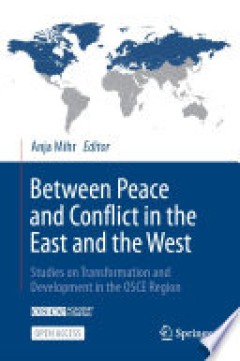
Between peace and conflict in the East and the West: studies on transformatio…
This open access book features various studies on democratization, transformation, socio-economic development, and security issues in the Organization for Security and Cooperation in Europe (OSCE) geographical region and beyond. Written by experts and scholars working in the field of human dimension, security, transformation and development in Europe and Asia, particularly in post-soviet and co…
- Edition
- 1
- ISBN/ISSN
- 9783030774899
- Collation
- x, 297p
- Series Title
- -
- Call Number
- 341.7 BET b
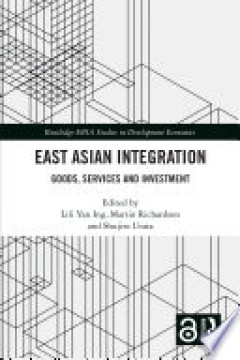
East Asian Integration
The growth of world trade has been stagnant in recent times; trade liberalisation now has been challenged. The recent rise of anti-globalisation calls for a better integration in East Asia. How should East Asia manage its openness? This book provides profound analyses on rules of origins, non-tariff measures, restrictiveness in services and investment. It gives insight into how East Asian count…
- Edition
- -
- ISBN/ISSN
- 9780429782497
- Collation
- 282
- Series Title
- Goods, Services and Investment
- Call Number
- 337.15 LIL e

Resisting postmodern architecture : critical regionalism before globalisation
Since its first appearance in 1981, critical regionalism has enjoyed a celebrated worldwide reception. The 1990s increased its pertinence as an architectural theory that defends the cultural identity of a place resisting the homogenising onslaught of globalisation. Today, its main principles (such as acknowledging the climate, history, materials, culture and topography of a specific place) are …
- Edition
- -
- ISBN/ISSN
- 9781800081338
- Collation
- xxiii, 394 p. ill;
- Series Title
- -
- Call Number
- 724.6 RES S
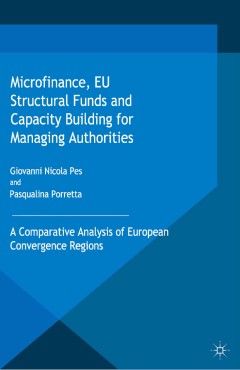
Microfinance, EU structural funds and capacity building for managing authorit…
In recent years, the European Commission has attached increasing importance to the use of financial engineering instruments rather than traditional grant-based financing for the microcredit sector, considering these to be the most efficient option available. This book presents a study of capacity building and structural funds in public managing authorities for the microcredit sector. It present…
- Edition
- -
- ISBN/ISSN
- 978137536020
- Collation
- xxx, 286p. : ill.
- Series Title
- -
- Call Number
- 332 MIC m
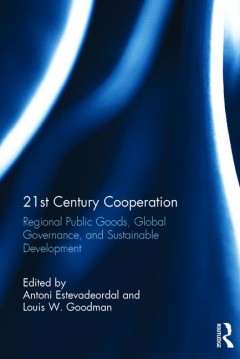
21st century cooperation: regional public goods, global governance, and susta…
This edited volume explains the importance of regional public goods (RPGs) for sustainable development and shows why they are particularly important in the context of 21st-century international relations. By presenting a new and original data set and by presenting original essays by renowned scholars, this book lays the foundation for what will become an increasingly important focus for both ec…
- Edition
- -
- ISBN/ISSN
- 9781315185927
- Collation
- xxvi, 381p.: ill.; 24 cm
- Series Title
- -
- Call Number
- 302.14 TWE t
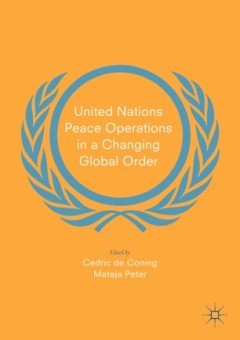
United Nations peace operations in a changing global order
This open access volume explores how UN peace operations are adapting to four trends in the changing global order: (1) the rebalancing of relations between states of the global North and the global South; (2) the rise of regional organisations as providers of peace; (3) the rise of violent extremism and fundamentalist non-state actors; and (4) increasing demands from non-state actors for greate…
- Edition
- -
- ISBN/ISSN
- 9783319991061
- Collation
- xxv, 334p. : ill.
- Series Title
- -
- Call Number
- 341.584 UNI u
 Computer Science, Information & General Works
Computer Science, Information & General Works  Philosophy & Psychology
Philosophy & Psychology  Religion
Religion  Social Sciences
Social Sciences  Language
Language  Pure Science
Pure Science  Applied Sciences
Applied Sciences  Art & Recreation
Art & Recreation  Literature
Literature  History & Geography
History & Geography